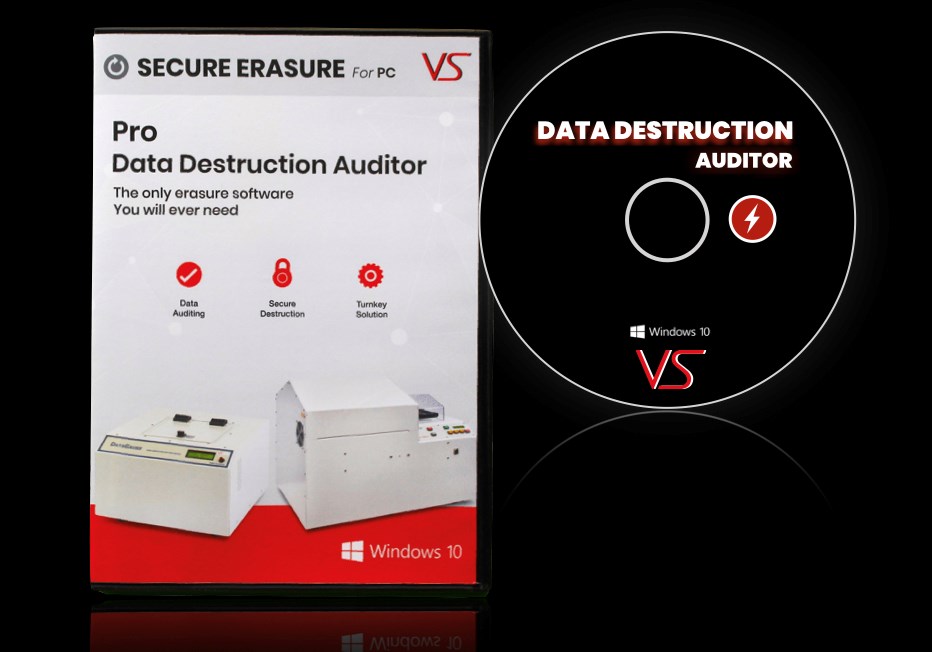Data Destruction Solutions: A Crucial Element in Your Cyber Security Technique
The Vital Nature of Information Devastation in Upholding Computer System Safety And Security Solutions and Protecting Against Unauthorized Accessibility
In an age where information breaches and identity burglary are significantly prevalent, the value of efficient information destruction can not be overemphasized. Various techniques, from information wiping to physical damage, offer as important safeguards versus unauthorized access.
Relevance of Data Damage
In an increasingly digital globe, the importance of data damage can not be overemphasized. As organizations accumulate huge quantities of sensitive information, the prospective effects of falling short to correctly take care of and get rid of of that information come to be increasingly serious. Information violations, identity theft, and corporate reconnaissance posture significant risks, highlighting the need of effective data destruction practices.

Additionally, as innovation advances, so too do the techniques by which harmful stars look for to exploit delicate details. Organizations should continue to be proactive and attentive in their information destruction methods to guard versus these developing dangers. By focusing on data destruction, business not just shield their assets however likewise foster trust among stakeholders and customers, showing a dedication to responsible data administration and protection practices.
Methods of Effective Data Damage
To guarantee the total and irreparable destruction of sensitive data, organizations can utilize a selection of reliable approaches customized to their specific needs. One of the most common methods is data wiping, which involves using specialized software to overwrite existing data multiple times, making recuperation virtually impossible. This is especially useful for hard disk drives and solid-state drives, where traditional deletion methods are inadequate.
Another reliable strategy is degaussing, which uses strong magnetic fields to disrupt the magnetic domain names on storage space media, providing the information irretrievable. This method is especially matched for magnetic storage space gadgets, such as tape drives and tough disks.
Physical damage is also a viable alternative, including the shredding, crushing, or incineration of storage space gadgets. This method guarantees that information can not be recovered, making it perfect for companies managing highly delicate info.

Compliance With Data Defense Rules
Organizations should not just concentrate on efficient information devastation methods however additionally ensure compliance with information defense regulations that regulate just how delicate information is managed and disposed of. Complying with these policies is necessary for maintaining and protecting personal data customer count on. Laws such as the General Data Protection Policy (GDPR) in the European Union and the Medical Insurance Mobility and Responsibility Act (HIPAA) in the USA enforce rigorous standards on information management, which include demands for the safe disposal of delicate info.
To accomplish compliance, organizations should carry out detailed data destruction policies that straighten with these lawful structures. This includes identifying data that calls for devastation, developing procedures for safe methodsâEUR" such as shredding physical media or utilizing software application that meets market standards for information wipingâEUR" and preserving comprehensive records of devastation tasks. Routine audits should be performed to make certain adherence to these policies and to identify any kind of prospective locations for enhancement.
Failure to follow information security regulations can bring about considerable legal implications, including substantial penalties and damage to an organization's credibility. Therefore, incorporating compliance right into data devastation practices is not just a see here legal commitment however additionally an essential element of a robust details safety and security strategy.
Effects of Poor Data Handling
Poor data handling can bring about severe repercussions that expand past immediate operational troubles. Organizations may face considerable economic losses due to data breaches, which often lead to expensive removal initiatives, legal fees, and regulative penalties. These economic implications can hinder and stress sources development, inevitably affecting an organization's bottom line.
Furthermore, bad information handling can drastically harm a company's reputation. Partners, customers, and stakeholders may shed count on an entity that falls short to shield delicate details, resulting in lowered consumer commitment and possible loss of organization possibilities. This disintegration of depend on can take years to reconstruct, if it can be brought back whatsoever.
Furthermore, organizations could encounter legal ramifications arising from non-compliance with information security policies. Such violations may cause examinations and charges, worsening the monetary concern and further staining the company's image.
In the world of cybersecurity, poor data management techniques can produce vulnerabilities that make systems more at risk to unapproved access and cyberattacks. Inevitably, these effects highlight the vital significance of implementing durable information dealing with procedures to safeguard delicate info and maintain business integrity.
Best Practices for Secure Data Disposal


To start with, information ought to be categorized according to its level of sensitivity. Delicate information requires much more strenuous disposal approaches, such as shredding physical files and using innovative software for electronic information cleaning. Employing certified information devastation services makes sure conformity with sector regulations and criteria.
Secondly, organizations should execute a data disposal plan that mandates normal audits. This plan needs to lay out the treatments for information retention and devastation, making certain that out-of-date information is dealt with quickly and securely. Training employees on these protocols is vital to promoting a society of safety understanding.
Finally, preserving comprehensive records of disposed data enhances accountability and provides a clear audit route. This documents must include the type of data damaged, the approach utilized, and the date of disposal.
Verdict
To conclude, the imperative of effective information damage appears in its website link function in enhancing navigate to this site computer protection solutions and reducing unauthorized accessibility dangers. Adopting durable methods such as information wiping, degaussing, and physical destruction, along with compliance with laws like GDPR and HIPAA, is essential for guarding sensitive details. Disregarding proper data disposal techniques can cause serious effects, consisting of data violations and legal effects. Carrying out best methods in secure data disposal eventually strengthens organizational stability and customer count on.
In a period where data breaches and identification burglary are increasingly widespread, the importance of reliable data damage can not be overstated. data destruction. Information violations, identification burglary, and company espionage present substantial risks, underscoring the necessity of effective information devastation practices
Conformity with regulations such as GDPR and HIPAA requireds that companies implement stringent information defense procedures, including the secure damage of data at the end of its lifecycle.
By focusing on data devastation, companies not only safeguard their properties however additionally foster count on among customers and stakeholders, showing a dedication to accountable information monitoring and security practices.
Organizations must not only concentrate on efficient data devastation approaches but additionally make sure compliance with data defense policies that govern exactly how sensitive details is handled and disposed of.